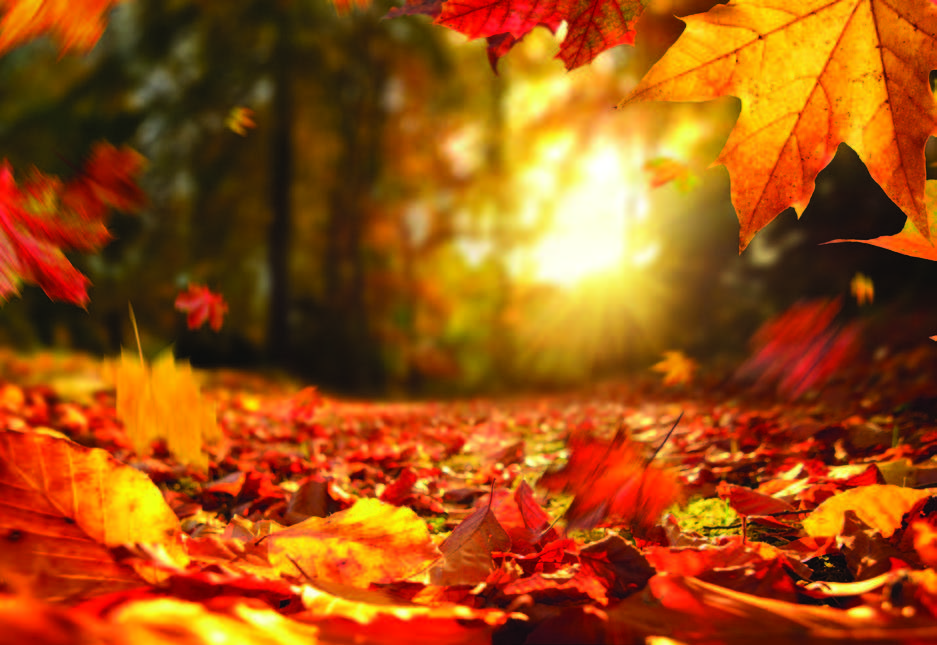September 21, 2020
Fall is here, and once again mother nature reminds us that our environment has an incredible influence on our lives. Amid wildfires, hurricanes, tornadoes and floods, disasters descend with little warning as victims stand by helplessly while homes and livelihoods are destroyed.
Even in the absence of such catastrophic events, the cyclical nature of the seasons reflects the process of growth and evolution that takes place within a series of changes that lead to movement.
As leaves turn from green to crimson and gold, squirrels scurry about burying acorns and humans retrieve sweaters and jackets from the back of closets. Although COVID-19 is invisible, the effects of it are everywhere, causing us to rethink much of what we had taken for granted. Shuttered workplaces, online learning and overcrowded ICUs remind us that life is different, and we must adapt accordingly.
Change is inevitable, but how we respond to what is beyond our control makes all the difference. Wearing facial coverings to protect ourselves and one another seems like a small inconvenience and yet, millions of people refuse to don a piece of cloth that can make the difference between life and death for those who are vulnerable.
To use the excuse of personal freedom is a non-starter when health care workers risk their lives caring for the sick and grocery clerks and others show up for work, minimizing disruption to everyday life for everyone. It prompts the question: How is it that some people respond to change and catastrophe with heroic virtue while others succumb to denial, bullying or violence?
As Christians, our actions should reflect what we believe. In times of crisis, we turn to God for solutions, but more importantly we seek wisdom to understand that hidden within every challenge and heartache is the power to love.
John’s Gospel tells us that God is love and Jesus reminded us that we are to love God and our neighbor as our self. In other words, faith is action as well as belief.
God is not a panacea, but a mystery that we are called to enter and embrace. If we believe that all people, believers and non-believers, are created in the image of God, then every act of love, whether done knowingly or unknowingly is a testimony to God because every good work is a response to God’s initiative and a reflection of God who is love.
At the end of the evening news, most news anchors feature a story about ordinary people, often children whose works are making a difference.
In the parable of the Good Samaritan, it was not the Priest or Levite that Jesus praised, but the Samaritan, whom the Jews regarded as outcasts and heretics. That should give every Christian pause. If we believe in God, how can we justify sowing seeds of hatred and division? Sadly, we reap what we sow, which has led to an endless series of wars, famines and persecutions.
With the advent of fall, we do well to reflect on nature as a sign of growth. Change, whether in nature, among people or in practice, takes place slowly, often evolving over generations of sacred listening. Leaves don’t just fall from trees but are gradually transformed into a panoply of color and at just the right moment slowly let go and die.
But that’s not the end of the story. Dead leaves decay and become compost for the earth, nurturing the soil that gives rise to springtime buds, adding height and volume to the tree from which it fell. To contemplate nature is to realize that all of life, living and non-living, is sacred. We are called to preserve, protect and learn from it.
God could have created a monolithic world but chose diversity. From the smallest flower to the redwood forest, from infants in the womb to the elderly whose life is a testimony to the joys and sorrows that move through and transform life, we are called to seek the face of God in a world teeming with reminders that life is a journey that involves change.
To learn how to know, love and serve God requires a lifetime of prayerful listening. Unlike God, who is kind, merciful and slow to anger, the human tendency to rely on quick fixes, regardless of the collateral damage, leads to more pain.
Like leaves that fall from trees in due time, let us pray for patience and humility so that our crooked little hearts may be healed to better reflect the life-giving heart of God whose love is without end.

